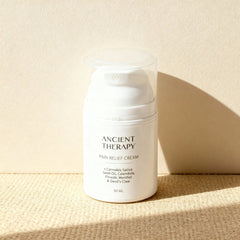Depression, a prevalent neuropsychiatric disorder affecting millions worldwide, has become increasingly common in today's fast-paced society. Its debilitating effects highlight the importance of exploring effective treatments, and natural alternatives like Lion's Mane Mushroom supplements are attracting significant attention.
Herbal remedies are gaining popularity due to their effectiveness, affordability, and minimal side effects compared to conventional medications. Among these, Lion's Mane Mushroom (Hericium erinaceus) stands out for its impressive potential to enhance brain and nerve health, making it particularly promising for treating neurological and depressive disorders. Learn more in our guide: The History and Uses of Lion's Mane.
Depression is complex, but emerging research suggests that Lion's Mane may effectively address neurobiological factors associated with the condition.
Intriguing Theories Behind Depression and Lion's Mane Mushroom
In this article, we'll explore key hypotheses on depression's pathophysiology and how Lion's Mane Mushroom might offer therapeutic relief. Let’s delve into these fascinating connections.

1. Lion's Mane Boosts the Monoamine System:
The monoamine hypothesis suggests depression arises from low neurotransmitter levels (serotonin, norepinephrine, dopamine). Research shows Lion's Mane Mushroom supports the monoamine system, maintaining higher neurotransmitter levels and improving mood. Explore further: How Lion's Mane Transforms Your Mental Health.
2. Lion's Mane Enhances Brain-Derived Neurotrophic Factor (BDNF):
BDNF helps the brain adapt and grow. Low BDNF levels are linked to depression, but Lion's Mane Mushroom can increase these levels, aiding neuroplasticity and reducing depressive symptoms. See also: Brain Health Supplements Collection.
3. Lion's Mane Supports Neurogenesis:
The neurogenic hypothesis suggests that depression negatively impacts brain neuroplasticity. Lion's Mane Mushroom encourages new neuron growth (neurogenesis), potentially reversing depressive effects and promoting brain resilience. For comprehensive details, read: Lion's Mane Potential in Neural Regeneration and Repair.
4. Lion's Mane Mushroom Reduces Inflammation:
Inflammation contributes significantly to depression. Compounds in Lion's Mane Mushroom, such as erinacine A, exhibit anti-inflammatory properties that can reduce depressive symptoms. Explore adaptogens with anti-inflammatory benefits here: Adaptogens Collection.
Clinical Studies on Lion's Mane and Depression Relief
Clinical trials highlight the mushroom’s promising antidepressant properties:
- In a study with menopausal women, Lion's Mane improved mood and reduced anxiety significantly.
- An elderly patient with depression experienced cognitive improvement after Lion's Mane supplementation.
- A pilot study on students reported better sleep quality and reduced anxiety after consuming Lion's Mane supplements.
- A clinical trial on overweight individuals linked Lion’s Mane to decreased anxiety, depression, and sleep disturbances.
Explore our high-quality Lion's Mane Mushroom Supplements to experience these potential benefits yourself.
Curious about other mood-enhancing adaptogens? Check out our article on Ashwagandha and Lion’s Mane for Mood and Productivity.
Let’s continue to explore how Lion's Mane Mushroom could positively impact mental health!






Leave a comment